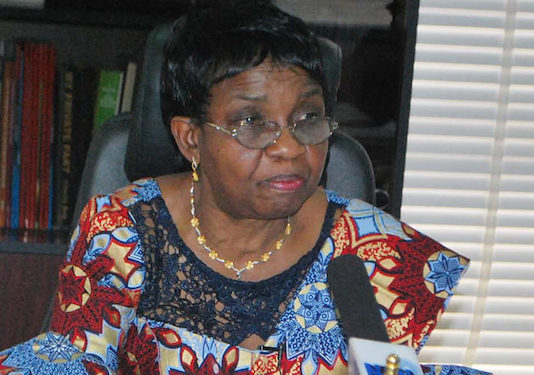Health
NAFDAC DG urges MSMEs to leverage on AFCFTA to expand market frontiers

Prof Mojisola Adeyeye, Director General, National Agency for Food and Drug Administration and Control (NAFDAC) says Nigeria’s participation in the Africa Continental Free Trade Area Agreement (AFCFTA) will usher in huge economic benefits, including a $2.5 trillion dollar Gross Domestic Product (GDP).
Adeyeye stated this to Micro, Small and Medium Enterprises (MSMEs) in the country, in a statement made available to our reporter in Abuja, on Monday, by Mr Sayo Akintola, Resident Media Consultant to NAFDAC.
The AFCFTA Agreement, which covers Trade in goods and services, investment, intellectual property, Rights and competition policy, aims to creating a single market for goods and services from across the African Union’s (AU) 55 member states.
It was adopted at the 10th extraordinary session of the AU assembly in Kigali, Rwanda, on March 21, 2018 with the aim to create a single market as well as deepening the economic integration of the African continent
She urged MSMEs to, therefore, take advantage of the trade zone to expand market frontiers for Nigerian exporters of goods and services.
“It will establish rules to evoke trade remedy, safeguard the Nigerian economy from dumping and unfair trade practices and improve competitiveness.
“AFCFTA is going to be the world’s largest trade area in terms of 54 (out of 55) participating countries, it will form a $3.4 trillion dollar economic bloc with a GDP of over $2.5 trillion dollars,” Adeyeye said.
The Director General, who reiterated the Agency’s resolve to continue to encourage the MSMEs in the country, to take advantage of the continental free trade zone, said it would catapult their businesses into the limelight of the global market.
According to her, participation of MSMEs will help fast track the much expected transformation of Nigeria’s economy through the free trade zone, which would be full of economic gains that Nigeria could not afford to be left behind.
She noted with satisfaction the enthusiasm already shown by the Nigerian entrepreneurs in the scheme, even though there was still room for improvement.
“In the extant regional ECOWAS Trade Liberalization Scheme (ETLS) that happens to be one of the Regional Economy Community (REC) building blocks for AFCFTA, over 850 Nigerian companies, with more than 6,000 products, have been admitted into the scheme with participation level of 50 per cent of the regional total.
“Currently, Nigeria ranks first with Ghana and Cote D’Ivoire ranking second and third, respectively, among ETLS beneficiaries,” she added.
She, therefore, restated the need for Nigerian businesses to build on this record, assuring that as a member of the National Approval Committee designated for screening applications, NAFDAC would continue to provide its support.
Adeyeye, who reaffirmed NAFDAC’s commitment to quality and standard, said only registered NAFDAC regulated products were approved for export, stressing that companies with expired NAFDAC certificates should endeavour to initiate the renewal process before export.
“It was established that some companies forged NAFDAC certificates, through their consultants and some did not have Good Manufacturing Practice (GMP),” she noted.




 Davido's Net Worth & Lifestyle
Davido's Net Worth & Lifestyle 
